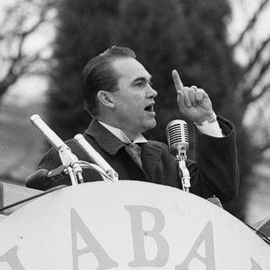Joe Richman: From Radio diaries, I’m Joe Richman, and this is The Unmarked Graveyard, a series about people buried on Hart Island, the lives they lived, and the people they left behind.
[Montage of clips from the series]
If you’ve been listening to our series, you know we’ve been attempting to untangle mysteries from America’s largest public cemetery.
There was a story about a woman’s search for the father she never knew, a successful writer who was largely forgotten, and a guy who spent every day for two years on the same park bench. But there’s some mysteries in Hart Island. We have not been able to solve. The Belvedere Hotel is in the heart of New York City’s theater district.
Many of its guests come to see the sights or take in a show, but there are also a few dozen people who call the Belvedere home. Decades ago, they came to New York and rented rooms there, and as the hotel changed hands over the years, they never left. One of them was Hisako Hasegawa, who lived a private and quiet life.
Nobody at the hotel knew much about her.
Today, Episode 7, The Woman in Room 208.
[SOUNDS OF HOTEL LOBBY
Unidentified man: Welcome to the Belvedere.]
Ali Mahmood: My name is Ali Mahmood, and I work at the Belvedere Hotel in New York City. Hisako Hasegawa lived here for at least 40, 50 years. And she lived alone.
Jerry: She was a very sweet lady. She would stop by, always say hello to me. My name is Jerry. I’ve been a bellhop at the Belvedere Hotel for 22 years. I would have a morning shift on Fridays and Saturdays. We always open the door for her. She’ll look up with a smile, huge smile. You know, she was always bowing, saying “hello, hello, hello.”
Mahmood: When she spoke, she spoke with an accent, but she was able to convey herself very clearly.
Every time I ran into her in a hallway or in the lobby, she said, nice to see you. She actually meant it.
If you wrote her a rent receipt, for example, you would magically find a hand drawn card next day on your desk. Someone took 45 minutes to make that card.
Jerry: Her handwriting was beautiful, like… poetry. I don’t know, I’ve never seen something like that. One time, I say hello, and she just waved and rushed into the elevator with her little shopping cart.
So she came and gave me a letter. “Hello Jerry, I do want to apologize that I didn’t get to say hello to you correctly.” You know, and just how bad she felt. And it touched me. There’s some tenants here that don’t got nobody to talk to. Nobody say, have a good day. Nobody say, happy holidays. Nobody say, I love you. Nobody say, I hate you. You know. [laughs]
Mahmood: I always saw her alone. Alone yet happy. Perhaps to each their own. You see such a person and you can’t help but wonder what her life has been.
[sound of elevator and a woman saying “come in, come in.”
Renee Querijero: My name is Renee. And I live here in Belvedere Hotel when Miss Hisako was still alive. This is where she lives, room 208, and I live in 207, across the hall. As far as the nearest neighbor, I am the only one she talks to and she knows my name. Doesn’t say so much, you know, except, you know, the usual greeting.
“How are you? Weather is nice. I’m gonna get my mail.”
[piano chord]
I always play this, you know.
[Renee begins to play classical music on the piano]
This is my piano. And I play it in the evening most often. She knows when I play the piano. Because she hears it. She tells me, you know, “It’s a good thing you played the piano last night. How nice is it.” Those things. Very gracious.
Nancy Boyce: My name is Nancy Boyce. And I have lived in this building at the Belvedere for the past 41 years. So, this is the living room and the bedroom. It’s just one, one big room. Hisako’s room, just like mine. This is the hallway. And then this is a depressing kitchen. Yeah, it’s very small. The size of a closet. I have my hot plate and refrigerator.
At least we had our own little kitchen, tiny. Our own private bathroom. That’s what was important to me.
People who don’t know, or like tourists or friends, they are amazed. Wow. You live in a hotel in the heart of the city, especially, you know, it’s a big deal for them. But to me, having lived here for such a long time, for decades, you know, I can’t stand this apartment.
At the end of the day, I feel lucky that I have my family and a wide circle of friends. But I see a lot of older people like Hisako. They’re all alone.
Jerry: One Friday I realized that she didn’t come down. And it bothered me. So I like, I asked upper management to please check up on her. Because we’ve had tenants that have passed away in the hotel.
Querijero: When I came in from work, everybody was on the hallway. The police and then the investigators were all there. And then they started asking questions, questions.
I said, what happened? She died. She fell from the bed. I cannot believe that she died that way. And investigator was telling me, Oh, you’re the next neighbor. Okay, do you know anybody who knows her? My gosh, after all these years, I never, I never saw her with anybody. I wish… if she only knock at my door, you know.
I should have asked her. They think that you are, uh, intruding or something, but no, that is, that’s a misconception. I think you should ask.
Ali Mahmood: New York is a place for the dreamers, and we all come from somewhere to leave and leave your families behind and come here and make a new life and one would hope that you’d find love and meet people and have a family and… Maybe not end up alone in a hotel room somewhere.
[Piano music]
Joe Richman (host): Thank you to the staff and tenants of the Belvedere Hotel. Piano performed by Renee Querijero in room 207. In our research, we discovered very little about Hisako Hasegawa. We know she was born in Japan in 1934 and probably came to the U. S. in the 1970s. One thing we do know is that after she died at the Belvedere in 2016, She was buried in plot 379 on Hart Island.
This story was produced by Nellie Gilles. It was edited by Deborah George, Ben Shapiro, and me. Sound mixing by Ben Shapiro. The Radio Diaries team also includes Alissa Escarce, Mycah Hazel, and Lena Engelstein. Our theme music is by Matthias Bossi and Stellwagen Symphonette. Thanks also to our broadcast partner NPR’s All Things Considered.
We’re proud members of Radiotopia from PRX, a network of independent, creator owned, listener supported podcasts. You can hear them all at Radiotopia. fm.
Radio Diaries has support from the National Endowment for the Humanities, the Lily Auchincloss Foundation, New York City’s Department of Cultural Affairs, and from listeners like you.
Coming up next week, our final episode of The Unmarked Graveyard, a missing persons case that fell through the cracks.
Unidentified male voice: The missing persons squad at that time was in a state of disrepair. I remember looking at this spreadsheet of open cases. It just went on for like a hundred pages.
Joe Richman: I’m Joe Richman of Radio Diaries. See you next week.








